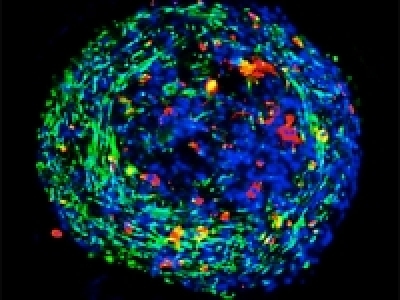Abnormal antibody production that allows inflammation leading to AIDS is detected by analysis of antibodies in gut fluid of HIV-1-infected people.
UAB’s novel lay navigation program demonstrates significant cuts in cancer care costs, serves as national model
Written by Beena Thannickal
UAB’s innovative Patient Care Connect Program utilizes lay navigation and provides a cost-effective new model for cancer care delivery.
Precision medicine: UAB study creates ‘mini-lung’ to study effect of pulmonary fibrosis drugs
Written by Bob Shepard
In another example of precision medicine, UAB researchers have used IPF patients own lung tissue to create models to determine the most effective medication for that patient.
Five faculty members in the School of Medicine have been named the 2016 class of James A. Pittman Jr., M.D., Scholars, a program organized to recognize the contributions of junior faculty and support the retention of highly competitive scientists and physician-scientists.
Office for Diversity and Inclusion Celebrates Diversity Day with Diversity Grand Rounds, Diversity Fair
Written by Laura Coulter
The Diversity Day events on Feb. 3 will begin with Diversity Grand Rounds, featuring John Ruffin, Ph.D., the founding director of the National Institute on Minority Health and Health Disparities, at noon in the Margaret Cameron Spain Auditorium.
Cardiac muscle patches in this proof-of-concept research may represent an important step toward the clinical use of 3-D-printing technology, as researchers have grown heart tissue by seeding a mix of human cells onto a 1-micron-resolution scaffold made with a 3-D printer.
UAB and VICIS have each made major strides in developing next generation football helmets in response to the growing concussion crisis, and they have partnered to combine expertise and intellectual property to bring more effective helmets to the market.
Researchers describe a novel underlying mechanism involved in PTSD and other anxiety disorders
Written by Jeff Hansen
This study shows how stress blocks the release of an anti-anxiety neuropeptide in the brain, and it could pave the way for new therapeutic targets for PTSD.







